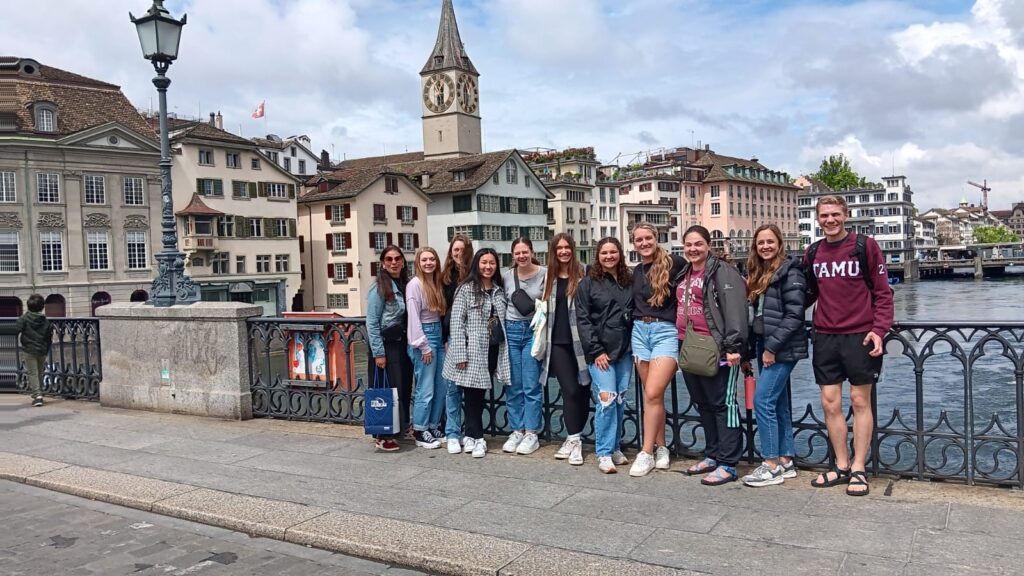Texas A&M students get close-up look at Swiss-style event management
Course provides hands-on experiences, opportunities to learn from other cultures
A group of students from a class in Texas A&M’s Department of Recreation, Park and Tourism Sciences in the College of Agriculture and Life Sciences recently traveled to Switzerland as part of a study abroad experience in event management.
Ten students — eight recreation, park and tourism sciences majors, one minor and one doctoral student in education — were part of an international event management class designed to open participants’ minds about what event management looks like in other countries, while learning about other cultures.
Students in the class led by Donna Lee Sullins, Ed.D., an instructional assistant professor in the Department of Recreation, Park and Tourism Sciences, were given hands-on experience and academic instruction on the Swiss hospitality industry. They also participated in learning and cultural experiences in several Swiss cities and on side trips to Germany and France.
“In the RTPS 489/689 International Event Management Class, the students and I met each Monday at Texas A&M during the spring semester to learn more about event management in Switzerland,” Sullins said. “This was in preparation to take part in an event there and learn how the European style of event management might differ from that in the U.S.”
Hands-on experience in event management
The students participated in a World of Hospitality (WOH) event in the resort village of Leysin The event was themed Nature’s Symphony and presented by students of the Swiss Hotel Management School.
WOH programs take a holistic approach by combining engaging, hands-on learning with experiences meant to boost confidence and create lasting memories. Participants get a global view of the hospitality industry, covering various trends and topics. They also learn how to plan and implement an event from start to finish.
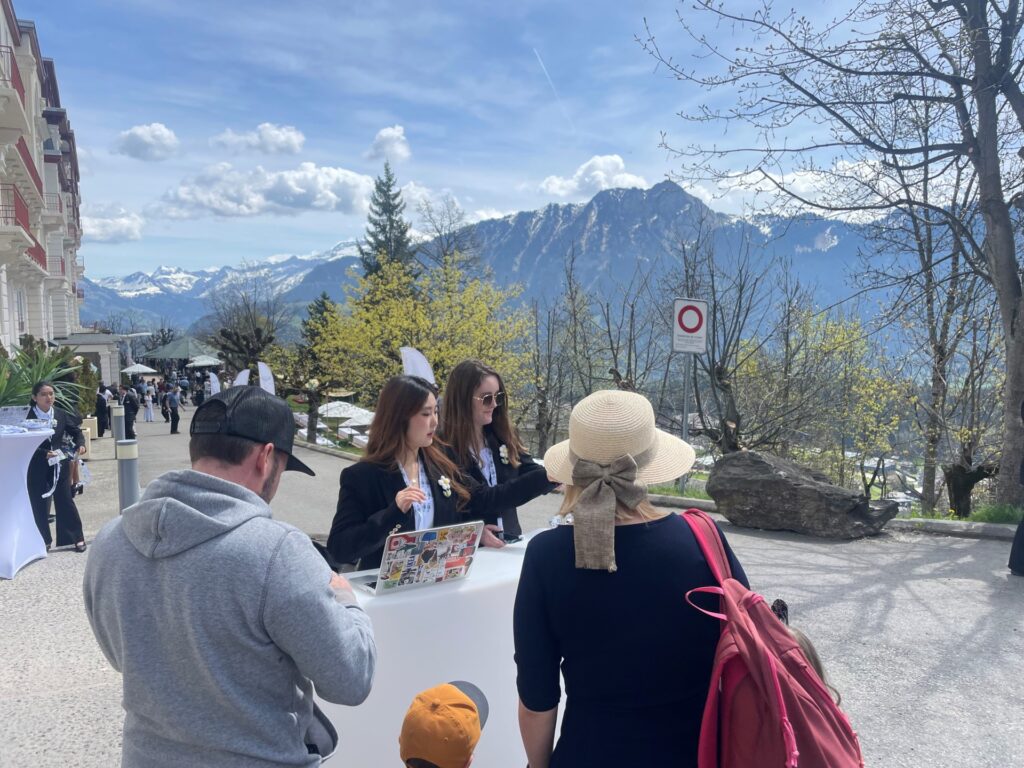
About 300 guests attended the WOH event, with the first guests arriving around noon and more coming in over the next few hours. The students were assigned to allocated teams to work the event.
“Students were assigned to work in different departments managed by other students,” Sullins said. “They were all deeply engaged in serving the guests, and it was very gratifying to see them do that.”
Some students greeted and checked in guests, while others worked the cloakroom or assisted with a wine tasting or serving hors d’oeuvres. Still, others worked in the children’s area and cleaned up after the guests finished eating.
“The service and bar team put tablecloths on tables while other teams blew up balloons for the children’s area,” said Emma Kiel, who just completed her sophomore year. “Our event management guest and venue team welcomed and checked in guests while the service and bar team handed out champagne.”
As the event progressed, guests were treated to music from event volunteers, including Lexi Rivers, who will be a junior this fall.
“As part of the entertainment committee, I rehearsed with other musicians and singers to prepare for my performance on the piano,” Rivers said. “My other duties included helping set up the Kid’s Club area and helping with the post-event takedown.”
After the event, the students discussed what might have been done to improve the event and the guest experience.
Additional event management content, activities
For the class, students had to research different locations in Switzerland, as well as investigate city and country theming at events.
One of their assignments was planning an Olympic opening or closing ceremony; another involved participating in a hands-on food and beverage service activity on the last day.
“At the Olympic Museum in Lausanne, we got to see elaborate costumes from opening ceremonies and really enjoyed sitting to watch a compilation of many past opening ceremonies,” Sullins said. “The students were tasked with creating their own ‘dream’ opening or closing ceremony for the Olympics, assuming Switzerland was the host country.”
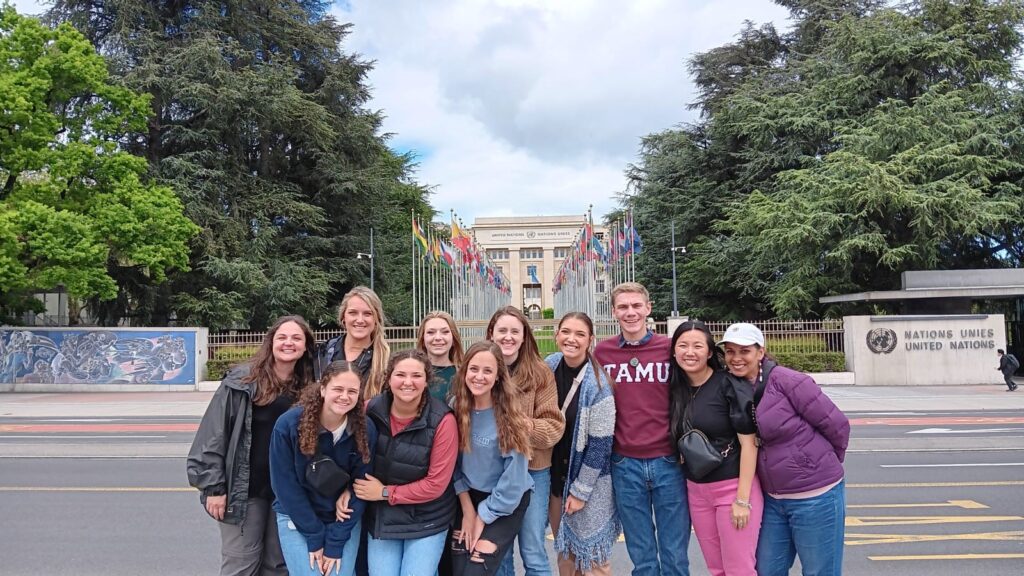
While in Zurich, the students took a cooking class to learn more about Swiss cuisine. In Lausanne, they visited the internationally renowned Royal Savoy hotel to see an example of world-class hospitality.
Student activities also included visits to Chillon Castle near Montreaux, the Freiburg Munster and Saturday market in Freiburg, Germany, and the source of Evian bottled water in Evian-les-Bains, France.
“We also discussed safety and security at conferences and meetings related to global peace and understanding, such as what occurs at the United Nations,” Sullins said. “And we discussed sporting event management and related ancillary events, such as those associated with the Olympics and World Cup. To get the complete picture, we saw the UN building in Geneva and visited the International Olympic Committee headquarters in Lausanne and the FIFA International Football Federation Museum in Zurich.”
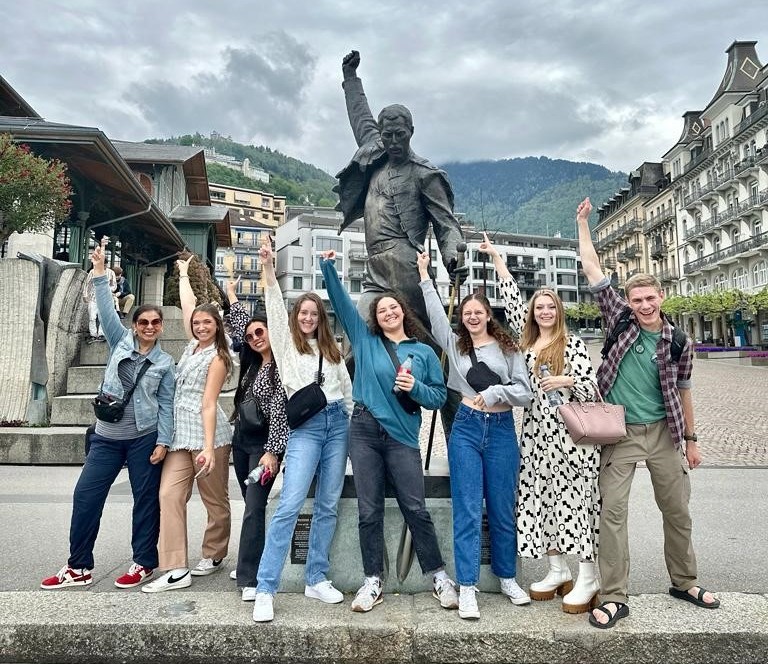
Lessons from the course
One of the participants, Logan Russell, a senior working toward a degree in recreation, park and tourism sciences, said he noticed some subtle differences between Swiss and American hospitality.
“The Swiss take hospitality very seriously and really try to provide a positive experience,” he said. “In many ways, it’s more laid-back than in the U.S. For example, you won’t get the check in a restaurant until you ask for it. They want you to take your time and enjoy the meal — and the company of the people you’re with.”
He said another difference was in the general demeanor of the Swiss hotel personnel, store owners, merchants and other service providers.
“They were all highly professional and, at the same time, very approachable,” Russell said.
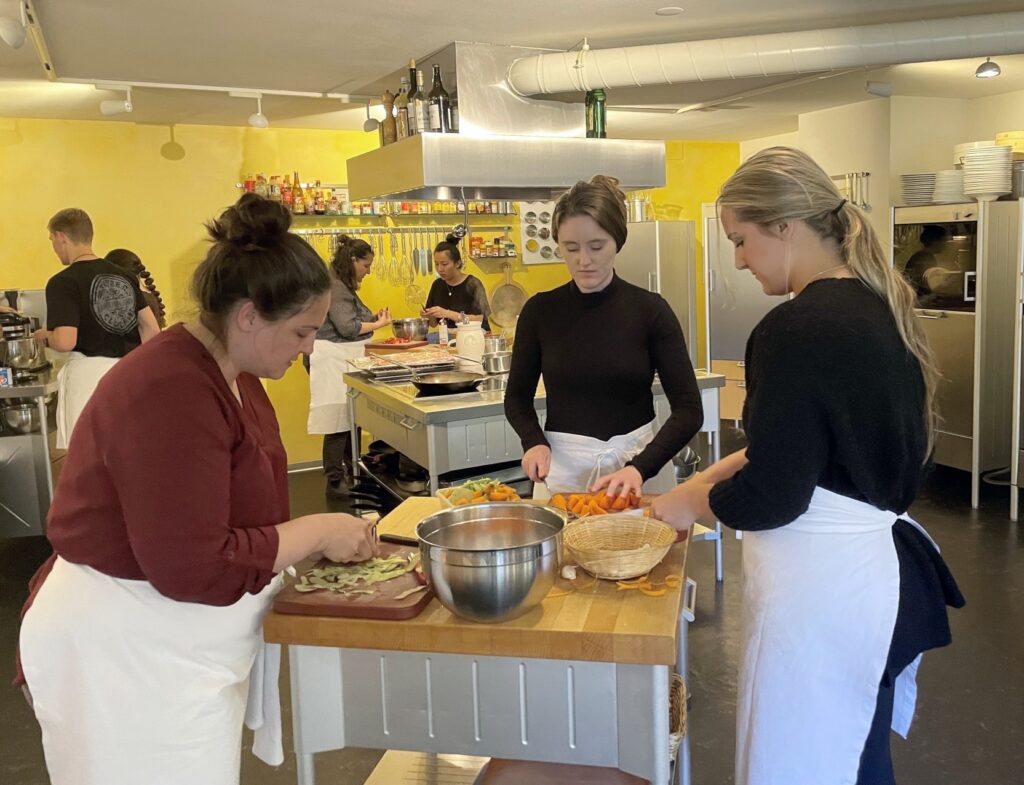
“I run a small home-based bakery as a cottage business and hope to someday open a storefront of that business or another service-related business in my hometown,” he said. “I plan on having that same sort of professionalism and seriousness about customer service when I finally open my business.”
Rivers said the experience was a way to bond with other students and to understand how different countries might have unexpected challenges in event management.
“I learned a lot about the importance of communications and considering how logistics may differ when putting on events in other countries,” she said.
For example, Rivers said, Switzerland has many historical areas where the streets are uneven or made of cobblestone and might present challenges for older or disabled people.
“Dr. Sullins asked us to consider what infrastructure and logistic considerations would need to be addressed to accommodate those attending an event being held at that kind of location,” she said.
Sullins said experiencing the different ways other countries view hospitality helps expand students’ knowledge and gives them new perspectives on how they might want to approach hospitality in whatever career they choose.
“This also gives them an opportunity to get hands-on experience in some possible future careers while exploring other cultures and creating memories that will last a lifetime.”
